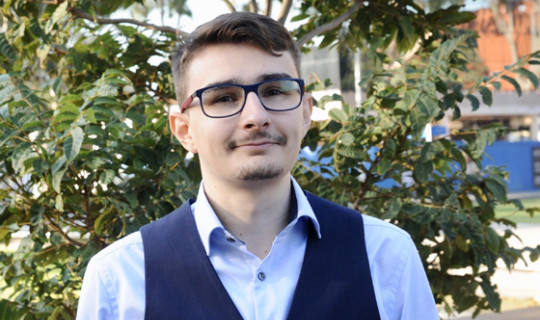Dr Antonios Meimaris will present an online lecture entitled ‘A Brief History of Randomness: From divination and gambling to modern Probability Theory & Statistics,’ from the Greek Centre on Thursday, 9 July 2020 at 7pm.
The lecture is part of the Greek History and Culture Seminars offered by the Greek Community of Melbourne.
SYNOPSIS:
Mythology is filled with stories in which the outcome of a game of chance determined the course of events. Zeus, Poseidon and Hades split the universe through a game of dice.
King Nala, as depicted in the Mahabharata, played a game of dice and gambled away his wealth and kingdom, and Thoth, the ancient Egyptian god of science, gambled with the Moon and won some moonlight in a game of dice.
Humans create gods in their image. Thus, gambling dominated people’s minds from the first years of their existence on Earth.

However, it is only in the late 15th century that the science of randomness begins to develop. This seminar focuses on the history of randomness and the first attempts for its rigorous mathematisation that led to the current theory of probability and statistics which is now used in most scientific fields.
READ MORE: Seminar series on Greek history and culture to resume online this week.
ABOUT DR ANTONIOS MEIMARIS:
Antonios is a final year PhD Candidate & Teaching Associate in the Department of Econometrics & Business Statistics at Monash University, and a member of the Stochastic Engineering Dynamics Lab at Columbia University, USA.
His research involves working on stochastic problems with applications covering a wide array of disciplines ranging from the physical-mechanical spectrum to fields such as chemistry, biochemistry and ecology with clear connections with Quantitative Finance.
He has been awarded the Postgraduate Publications Award (PPA) for his doctoral research and subsequently, the Teaching Excellence Award (Best Ph.D. Teaching Associate) for his teaching.
More details about the lecture will be announced soon.
